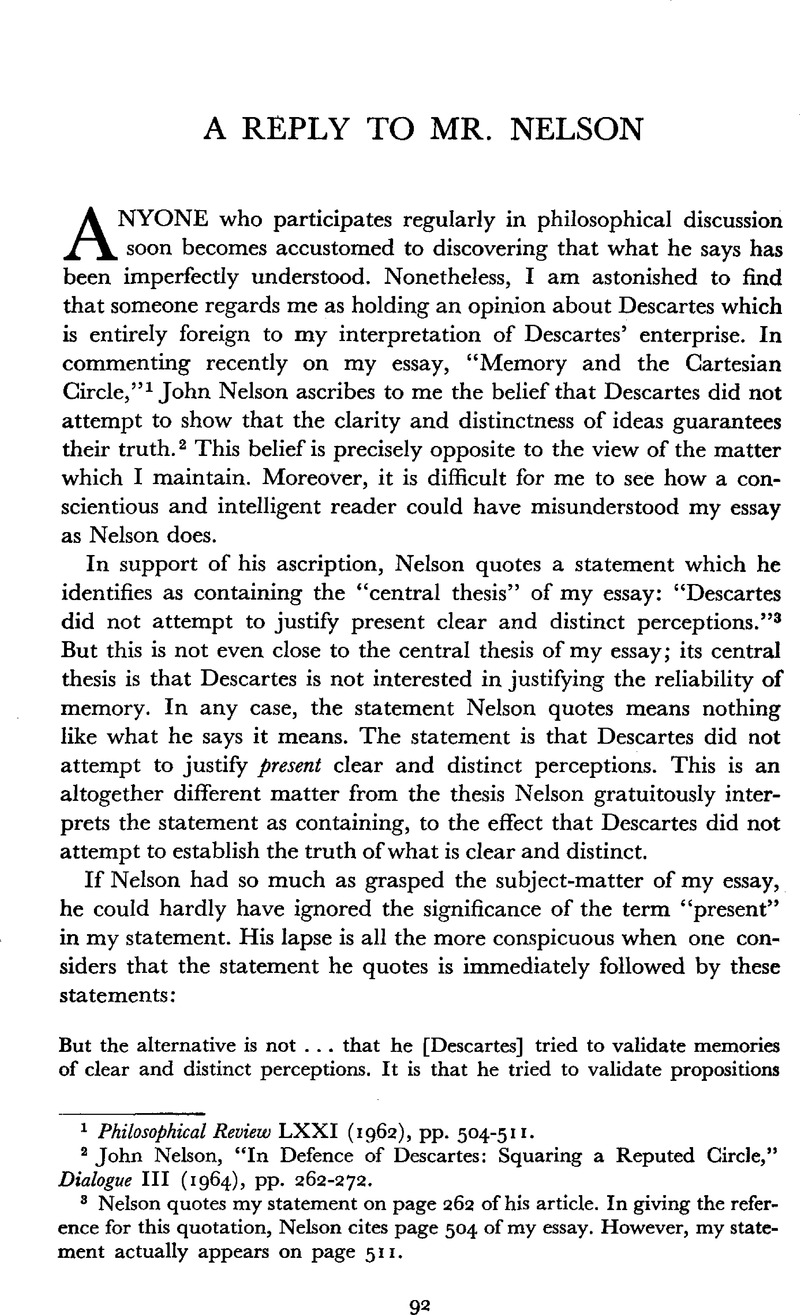Article contents
A Reply to Mr. Nelson
Published online by Cambridge University Press: 01 June 1965
Abstract

- Type
- Notes—Discussions
- Information
- Dialogue: Canadian Philosophical Review / Revue canadienne de philosophie , Volume 4 , Issue 1 , June 1965 , pp. 92 - 95
- Copyright
- Copyright © Canadian Philosophical Association 1965
References
1 Philosophical Review LXXI (1962), pp. 504–511.
2 Nelson, John, “In Defence of Descartes: Squaring a Reputed Circle,” Dialogue III (1964), pp. 262–272CrossRefGoogle Scholar.
3 Nelson quotes my statement on page 262 of his article. In giving the reference for this quotation, Nelson cites page 504 of my essay. However, my statement actually appears on page 511.
4 One such statement is quoted on page 510 of my essay. Cf. Haldane and Ross, Philosophical Works of Descartes I, 42.
5 Op. cit., p. 504. Emphasis supplied.
6 Nelson says I argue as follows: “Justifying reason by giving reasons is transparently circular; Descartes does no such thing; thus Descartes does not justify clear and distinct perception.” Op. cit., p. 266. But I do not endorse this argument; I merely produce it.
7 Nelson criticises me for equating reason with clear and distinct perception. But the correctness of my equation does not bear on the question of whether Nelson understands my view of Descartes' problem.
8 Op. cit., p. 505.
9 In the essay with which Nelson deals, I am concerned less with developing an interpretation of Descartes than with criticising an interpretation which others have proposed. Thus, the statement which he quotes as containing my “central thesis” occurs in the last paragraph of my essay and is quite incidental to its primary aim. My own analysis of how Descartes avoids circularity in his justification of clarity and distinctness is developed in an essay entitled “Descartes' Validation of Reason,” American Philosophical Quarterly, April 1965.
- 1
- Cited by


